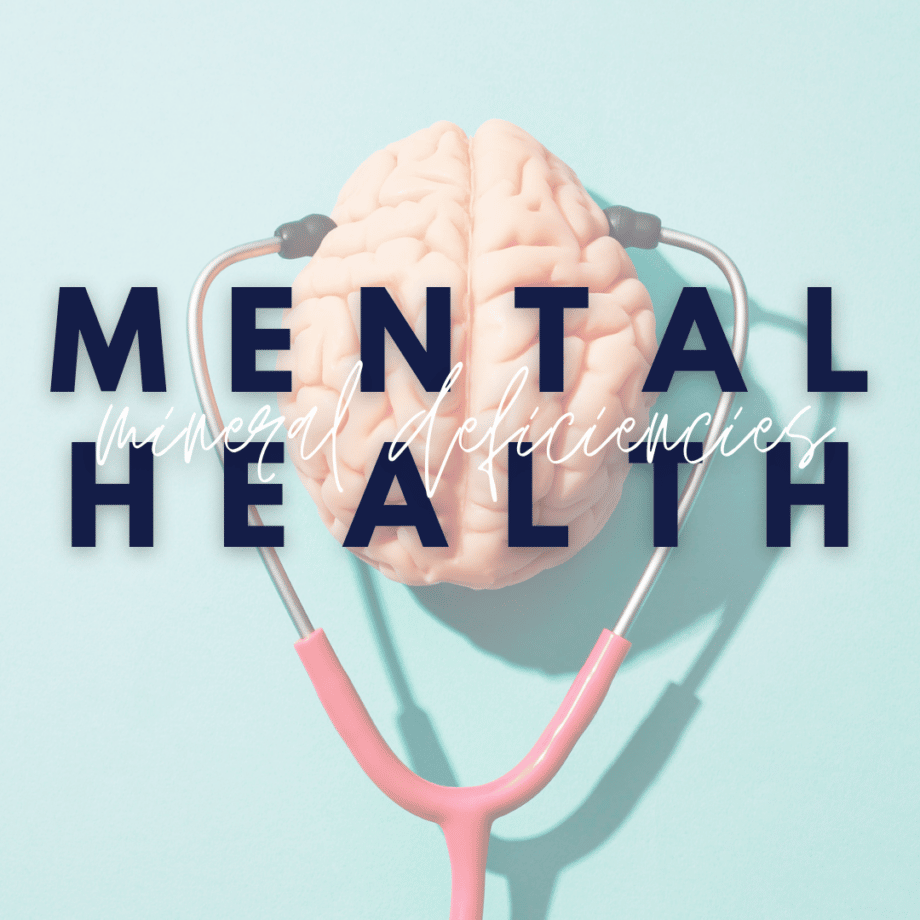The connection between nutrition and physical wellness has been well documented. However, the connection between nutrition and a balanced mood can be harder to recognize. For example, those with frequent mood swings or prolonged unhappy moods can tend to skip meals and crave sweets, making their daily diet less than ideal. When lacking the proper nutrients your mood can be affected. Introducing the right nutrients into your diet or supplement program may have a positive effect on your mental wellbeing.
Today, the average American is lacking in vital vitamins and minerals due to poor eating choices such as skipping meals, eating foods high in sugar and fats, highly processed foods, and very little fruits and vegetables. A diet of this nature is likely to lead to mineral deficiencies making it hard for the body, and the brain, to function at an optimal level.

6 Minerals that May Help Support a Balanced Mood
Omega-3 and Omega-6 Fatty Acids
Active ingredients EPA and DHA in omega-3 fatty acids encourage elevated mood in those who may have been experiencing unhappiness over time. Omega-3 and omega-6 fatty acids play an important role in brain function, so if deficient due to lack of consumption or other reasons, brain function may be left unsupported.
Chromium
Healthy chromium levels in the body will aid in the production of serotonin and release of norepinephrine. Serotonin is generally thought to optimize mood and happiness. Norepinephrine supports brain function and can play a role in energy and alertness. Chromium also supports a healthy diet by increasing insulin utilization, increasing appetite, and playing a role in an optimized metabolism.
Iodine
Iodine’s role in the body is mostly known for its thyroid support. The thyroid plays an integral role in the body’s metabolism. Deficiencies in iodine can lead to low activity in the thyroid creating an unhappy mood and brain fog. For the young adult, a deficiency in iodine may lead to developmental issues that are hard to reverse.
Iron
Iron deficiency is sometimes correlated with a short attention span, feelings of unhappiness and worry. For young adults, it can affect brain development and in mature adults’ deficiency can lead to exhaustion. Increasing iron in the body through diet or supplementation can support brain function, support a balanced mood, and support energy levels.
Selenium
Due to our soil health today, it is not uncommon for people to have a selenium deficiency. Studies have shown the connection between low selenium and a poor mood. By increasing selenium in your body through diet or supplementation you may experience better moods and lessened feelings of worry.
Zinc
Zinc can support immune health, brain health and many other bodily processes. A deficiency in a mineral that plays such a large role in the body and brains processes may have you feeling down or more tired than normal. Increasing zinc in your body through diet or supplementation can help a balanced mood by protecting brain cells from damage.

